My Health, My Story: Employees Share Health and Well-Being Challenges in the Pandemic
In their own words, and for Open Enrollment for health benefits, Duke staff and faculty explain why their health and insurance are important
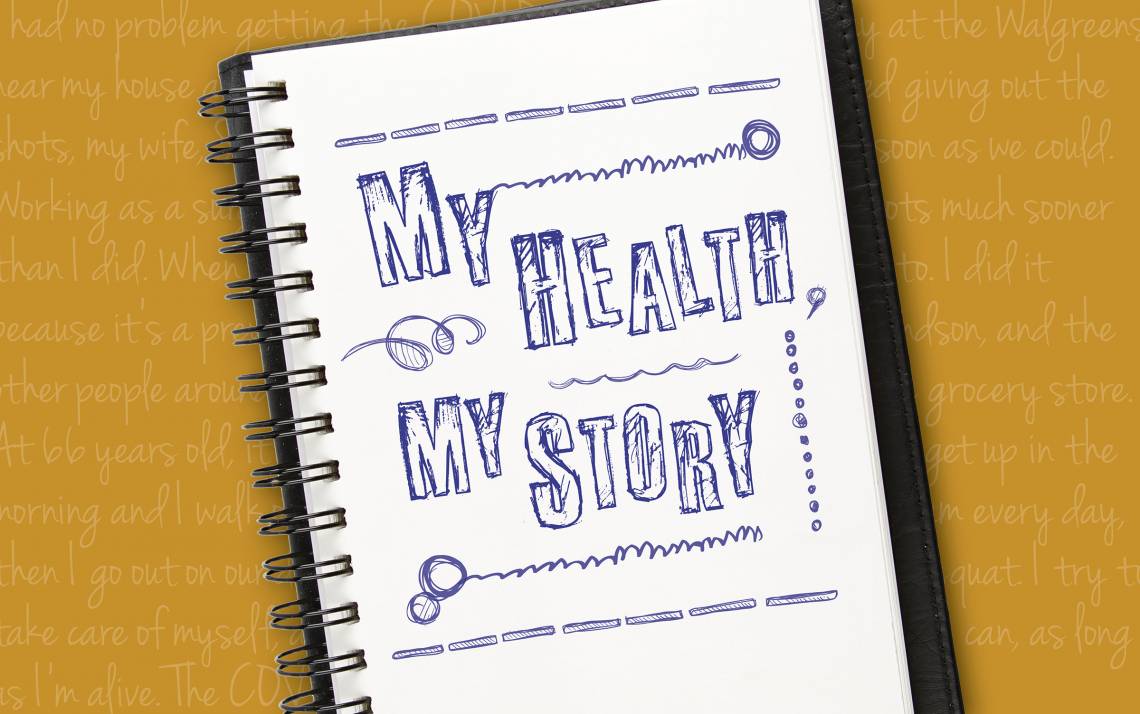
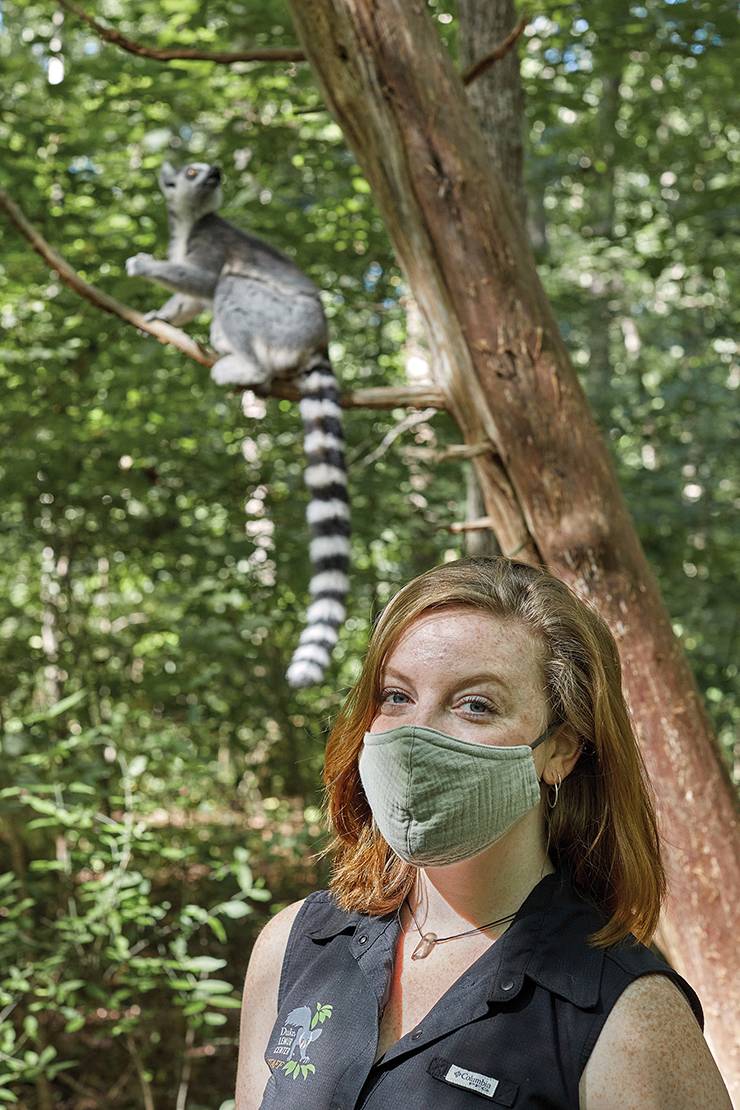
After the COVID-19 outbreak in early 2020, Faye Goodwin knew the months ahead would be challenging, but she thought she had a good approach for handling the pandemic.
With more time at home, she planned on increasing daily exercise and refining her diet. And social media channels helped her stay current on virus trends and conversations about racial injustice and political turmoil.
But as 2020 wore on, Goodwin, the Duke Lemur Center's lead education specialist, felt increasingly stressed. She started most days drained from her fitness routine and morning scrolls through news on her smartphone. She didn't feel healthy.
While she received free counseling from Duke Personal Assistance Service, Goodwin found that social media breaks and a gentler fitness plan left her feeling healthier and more in balance.
“A year later, my mental health is better than it has been in a long time, and my body is happier as well,” Goodwin said.
The upheaval created by the pandemic left many Americans, including Duke staff and faculty, struggling to maintain physical health and well-being. “Stress in America,” an American Psychological Association survey, reported that, during the pandemic, 61 percent of adults had undesired weight changes; nearly half delayed or canceled health care services; and roughly one in four were drinking more alcohol to cope.
These effects pose long-term health risks such as Type II diabetes and heart disease, and a higher risk of stroke, liver disease and cancer.
Dr. Satish Subramaniam of Duke Employee Occupational Health and Wellness said disrupted routines, increased stress and limited access to coping resources such as friends or exercise have left members of the Duke workforce with health struggles. But he noted that many of the concerns can be addressed through small changes or programs available through Duke.
“The biggest issue we see is that people know they're struggling, but they're not sure how to help themselves either with the available resources or by connecting with other people who may be able to help,” Subramaniam said.
With annual Open Enrollment for medical, dental and vision coverage from October 18 through October 29, staff and faculty have an opportunity to put their physical and mental health first by reviewing benefits available through Duke, making plan adjustments or enrolling in voluntary programs such as the health care reimbursement account.
While the pandemic has challenged the health and well-being of many, everyone's story is unique. By hearing, in their own words, how some colleagues found their path to better health, you may find inspiration for yours.
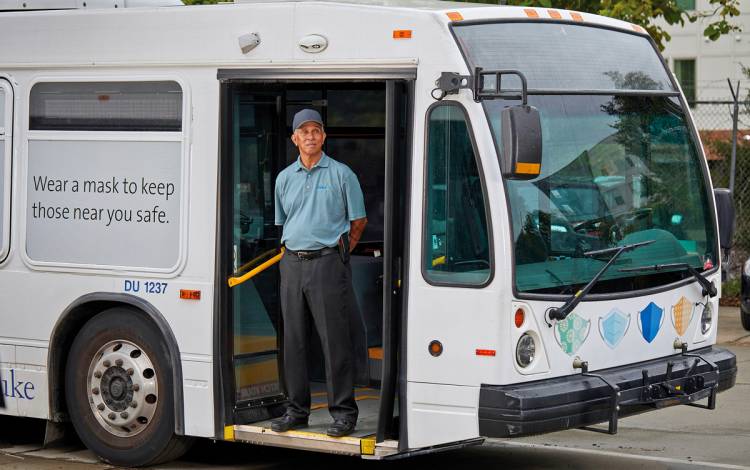
Doug Pratt, 66, has been a bus driver at Duke since 2018, filling in where needed to drive any of the 10 routes across campus. When COVID-19 vaccines became available, Doug got his first dose as soon as he could in early February. In the time since, Duke revised its COVID-19 vaccination policy to require all Duke University faculty and staff to be vaccinated as a condition of employment. Since then, nearly 99 percent of faculty and staff are fully compliant. For more information about the vaccine and Duke's coronavirus response, visit covidvaccine.duke.edu.
Sept. 7, 2021
I had no problem getting the COVID-19 vaccine right away at the Walgreens near my house as soon as it was available. When they started giving out the shots, my wife, Sonya, and I made appointments as soon as we could.
Working as a surgical tech at UNC Health, my wife received her shots much sooner than I did. When it was my turn, I didn't do it because I had to.
I did it because it's a prevention to take care of my wife, kids and grandson, and the other people around us, including coworkers and people I pass in the grocery store.
At 66 years old, it's important to me to prioritize my health. I get up in the morning and I walk or run laps around my neighborhood in Durham every day, then I go out on our deck and use free weights to bench, curl and squat. I try to take care of myself, and it benefits me to try to be the best me I can, as long as I'm alive. The COVID-19 vaccine is just another part of taking care of myself. We've seen so many people get sick, so it was common sense for me to take care of it.
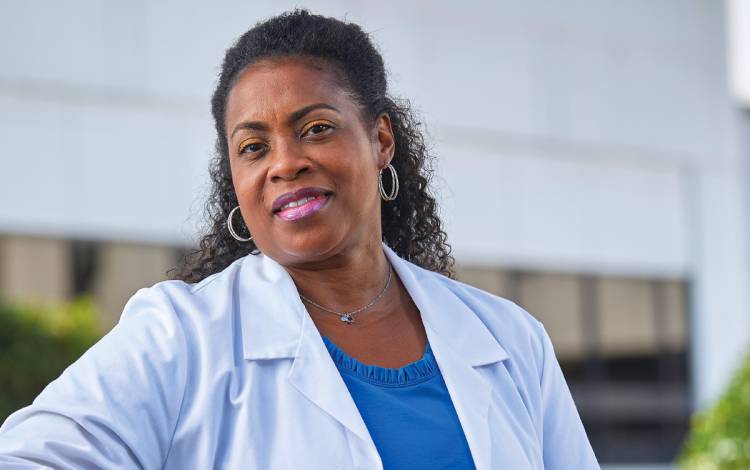
Duke Regional Hospital Wound Nurse Consultant Felicia Street maintained her mental health by finishing a book about healing racial division and developing a podcast about race and mental health titled “How Did We Get Here?” with Duke Psychiatrist Dr. Leslie Bronner. While the American Psychological Association reported that 47 percent of Americans delayed or canceled health care services during the pandemic, Felicia, 60, kept her acupuncture and chiropractic sessions, paying with her Duke Health Care Reimbursement Account.
Aug. 31, 2021
When the pandemic started, it was a hard time, just mentally, physically, and emotionally exhausting. I realized I did not feel healthy physically, I felt depressed. I thought, ‘OK, I've got to do something.'
I love cooking, so I started making healthier meals with nice salads, steamed vegetables, and fruit. And I made sure to add in chiropractic care and acupuncture as stress relief. Acupuncture relaxes my muscles and gives me an emotional boost when I feel depressed.
If I come to work stressed out or depressed, I can't do my best. I need to take care of myself so I can keep taking care of patients. Overall, my desire is for healing for myself and the world as well.
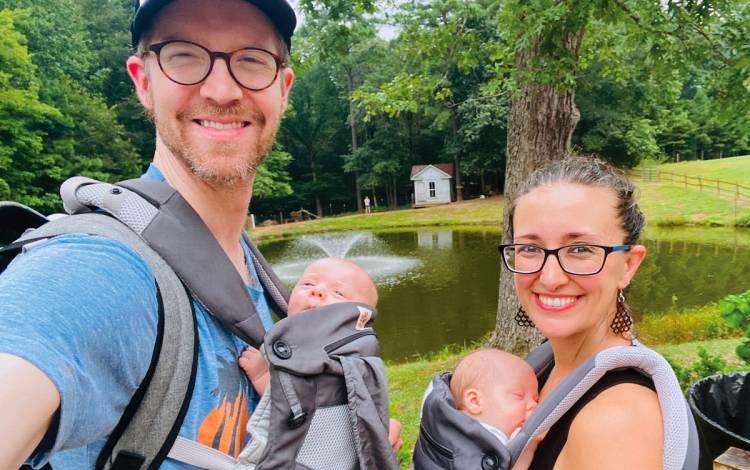
Sarah Gaither, assistant professor of Psychology and Neuroscience, and her husband, Matt Johnson, assistant professor in the Sanford School of Public Policy, became parents to twins earlier this year. The couple, who are on the Duke Select medical plan, paid only $600 out of pocket for the delivery, far less than the average cost to deliver a baby. And with a letter of medical necessity, Sarah and Matt have used their Duke Health Care Reimbursement Account for doula care, and they've used parental leave to spend time with their babies.
Aug. 30, 2021
It was a Friday, I had just finished my last Zoom meeting of the day,
and I was 33 weeks into my pregnancy. That's when my water broke. I stood there looking at the water on the floor, not having any contractions, and thinking “It's too early!”
My husband, Matt, walked in the door a minute later, and we immediately raced to Duke University Hospital. I nestled up for hospital bed rest with the goal of keeping the twins cooking a week more, but preeclampsia and a few other issues appeared, so after an emergency c-section a few days later, our babies Terran Ray and Eila Rae were born.
Throw in some hemorrhaging complications that I had the next day—which was the scariest part of the entire experience—and let's say I never knew until that week how fortunate we were not only to be at an amazing hospital, but to also have great health insurance.
Giving birth during the pandemic meant only my husband Matt could be there with me throughout my stay, so I was so profoundly grateful for the wonderful care I received. Our babies had a 5.5 week-long stay in the NICU/Special Care Nursery at both Duke Hospital and Duke Regional. The nurses helped teach them how to eat and trained us on how to change diapers, feed, and bathe our twins!
It took a village to get us all home, but the village's work wasn't over! Thanks to our flexible health savings account, we offset the costs to pay for doulas postpartum, which helped us catch up on needed sleep, but more importantly transition into our new roles as parents.
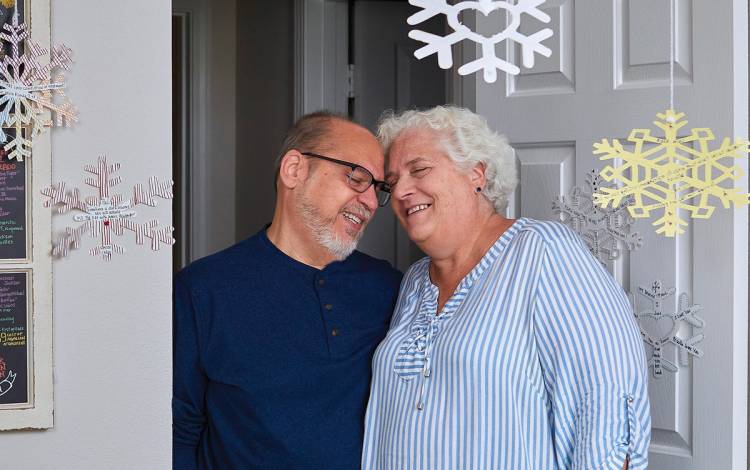
Paul Figuerado, 62, a graphic designer with the Office of Communication Services who has worked at Duke for 34 years, was diagnosed with metastatic stage-four prostate cancer in January 2021. Throughout Paul's experience, his Duke Select medical plan kept him from worrying about the financial costs of treatment. His insurance covered six weeks of radiation treatments and doctors' visits, and kept prescriptions, blood work and tests affordable. For adults covered by Duke employee medical plans, screenings and preventive medicine visits will be covered in full in 2022. They are important facets of staying on a pathway to better health.
Aug. 31, 2021
I've always been a fanatic about going to the doctor for regular checkups and have no history of cancer in my family, so it was a big shock when I found out I had prostate cancer in the middle of the pandemic. At the time of diagnosis, my Prostate-Specific Antigen levels were more than six times the normal levels for men my age. I began undergoing radiation treatment, hormone therapy and other oncology medications to attack the cancer, which has made a big difference in reducing the cancer and preventing it from spreading.
While dealing with cancer has been an emotional rollercoaster, I haven't had to worry about the financial considerations of treating it. Using our Duke Select health insurance has been great, and my wife and I haven't even had to think about the cost for treatment. I now take eight different prescriptions daily, but I only pay for three, which cost $37 combined for a 90-day supply of all three. During a difficult time, I am grateful that Duke Select has saved us thousands of dollars.
Nobody wants cancer, but now that I am in remission, I sometimes forget I've had it. Instead of worrying about costs for treatment, I have focused my time on feeling the support from my family and Duke family, who hung paper cut outs of snowflakes with encouraging words. They hung the snowflakes on the ceiling of my apartment a few days before my last day of radiation treatment in July. Growing up in Rhode Island, I love cold weather, so coming home to a home full of snowflakes helped me feel the support of so many. My three grandkids have kept me going throughout this journey. I want to continue to watch them grow up as I live a long life, and I look forward to other milestones, like my 40th anniversary with my wife, Melissa, next year.

Lorelei Evans started her career at Duke in March 2020 as a data processing specialist in the Duke Graduate School. After moving to Durham from Greenville, N.C., she battled isolation and anxiety. The Pew Research Center found that, a year into the COVID-19 pandemic, 21 percent of American adults experienced psychological distress. Lorelei, 30, found balance through aerial yoga at Raleigh's Cirque De Vol. LIVE FOR LIFE, Duke's staff and faculty wellness program, offers a variety of no-cost wellness options to get you on the right track.
Aug. 30, 2021
Around Thanksgiving, I was fed up. It was hard to start a new job in a new area during a pandemic. I missed my old friends and my aqua aerobics class in Greenville. I hadn't exercised in months. Boredom drove me to crave something exciting. When I saw Cirque De Vol was having a Black Friday sale, I gave it a shot.
At first, I wasn't happy with how I did. I didn't have much upper body strength. I had noodle arms. Soon, I learned how to use the strong fabric sling for balance and gained the strength to lift myself up. Hanging upside down for the first time was scary. But it's really exciting when you have people around you cheering.
I am the healthiest I have ever been in my life.
Enroll in or make changes to your 2022 medical benefits from Oct. 18-29, 2021.
Do you have a health or well-being story to share with us? Please write to working@duke.edu.